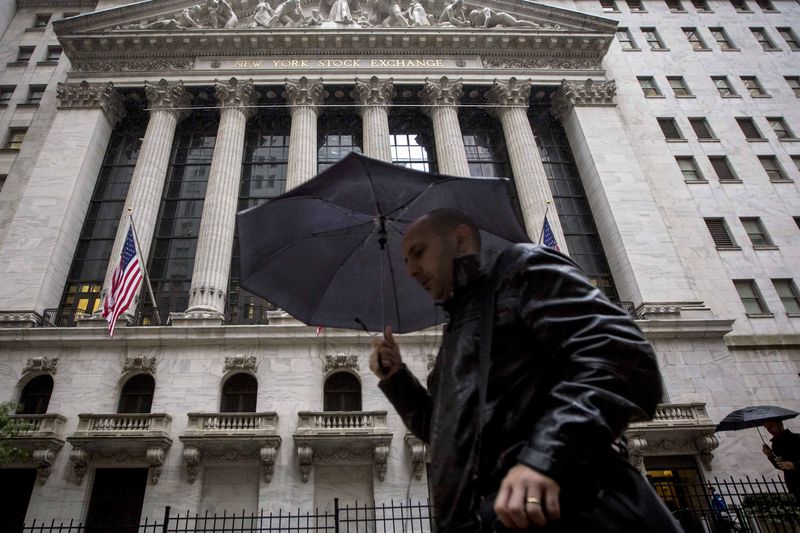Investing.com - Here are the top five things you need to know in financial markets on Monday, December 10:
1. U.S. Says March 1 "Hard Deadline" For Trade Deal with China
Markets will be keeping abreast of the ongoing trade spat between the United States and China amid growing doubts over whether the world's two largest economies will be able to resolve their differences.
U.S. Trade Representative Robert Lighthizer said on Sunday that trade negotiations between the two countries need to reach a successful end by March 1, or Washington will impose new tariffs.
"As far as I am concerned it is a hard deadline. When I talk to the president of the United States, he is not talking about going beyond March," Lighthizer said on the CBS show "Face the Nation," referring to President Donald Trump's recent decision to delay new tariffs while talks proceed.
Trump and Chinese President Xi Jinping agreed last week to hold off on additional tariffs on each other's goods for 90 days in order to allow for negotiations to continue.
Washington and Beijing have been engaged in a trade dispute for the most part of the year, with both countries slapping tariffs on several of each other's products. The standoff has raised concern in the market about a potential slowdown in global economic growth.
2. China Lodges "Strong Protest" Over Huawei Arrest
Markets were already reeling from news last week that Canadian officials had arrested the chief financial officer of Chinese electronics giant Huawei, Meng Wanzhou, for extradition to the U.S.
On Sunday, China summoned the U.S. ambassador to Beijing to lodge a "strong protest" over the arrest.
"The actions of the U.S. seriously violated the lawful and legitimate rights of the Chinese citizen, and by their nature were extremely nasty," Chinese Vice Foreign Minister Le Yucheng told U.S. ambassador Terry Branstad.
"China will respond further depending on U.S. actions," Le added, without elaborating.
Meng, the daughter of Huawei's founder, faces U.S. accusations that she misled multinational banks about Huawei's control of a company operating in Iran.
The development could throw up another hurdle to the resolution of a trade war between the world's top two economies.
3. U.S. Futures Point to Lower Open
U.S. stock futures pointed to a lower open at the start of the trading week.
At 5:40AM ET (10:40 GMT), the blue-chip Dow futures were down 72 points, or about 0,3%, the S&P 500 futures dipped 8 points, or around 0.3%, while the tech-heavy Nasdaq 100 futures indicated a drop of 20 points, or 0.3%.
The move lower in premarket comes after Wall Street posted its worst weekly performance since March last week.
Elsewhere, European stocks started the week on the backfoot, with all the major bourses in the region trading in negative territory. The pan-European STOXX 600 index fell 0.8% to hit a two-year low.
Earlier, stocks in Asia closed lower. Japan’s Nikkei paced losses throughout the region, dropping 2.1%.
Away from equities, the U.S. dollar index, which measures the greenback’s strength against a basket of six major currencies, was a shade higher at 96.59.
In the bond market, U.S. Treasury yields inched higher, with the benchmark 10-year note standing at 2.86%, while the yield on U.S. government bonds with 2-year maturities stood at 2.72%.
4. Oil Prices Slump Despite OPEC Cuts
In commodities, oil prices slumped, as investors shifted focus away from OPEC's decision last week to start cutting production and back to worries over global growth prospects.
Economists are worried that global trade conflicts between the world's major economies will drag on global growth and, by extension, erode energy demand.
U.S. West Texas Intermediate crude futures were down 79 cents, or 1.5%, at $51.82 per barrel.
International Brent crude oil futures were at $60.95 per barrel, down 72 cents, or 1.2%.
Read more: Commodities Week Ahead: Oil Prices Post-Cuts Will Be U.S. Vs. Rest Duel: Barani Krishnan
5. Brexit Vote in Focus
Back in Europe, investors are keeping a watchful eye on any further political developments in the UK ahead of a critical parliamentary vote on Tuesday on whether to accept or reject British Prime Minister Theresa May’s Brexit deal.
With her own future in the balance, May has repeatedly insisted that her deal, which envisages continued close ties with the EU, is the only one on the table and that the alternatives are a painful 'no-deal' exit from the EU or possibly no Brexit at all.
It is widely expected that the vote will not pass and ministers are concerned that the scale of defeat would be such it could bring down May's government.
The British pound was broadly lower, with GBP/USD down 0.3% at 1.2713 and EUR/GBP adding on 0.3% to trade at 0.8974
The currency briefly touched intraday highs earlier after the European Court of Justice ruled that Britain can unilaterally revoke Brexit if it wishes to do so.
-- Reuters contributed to this report
